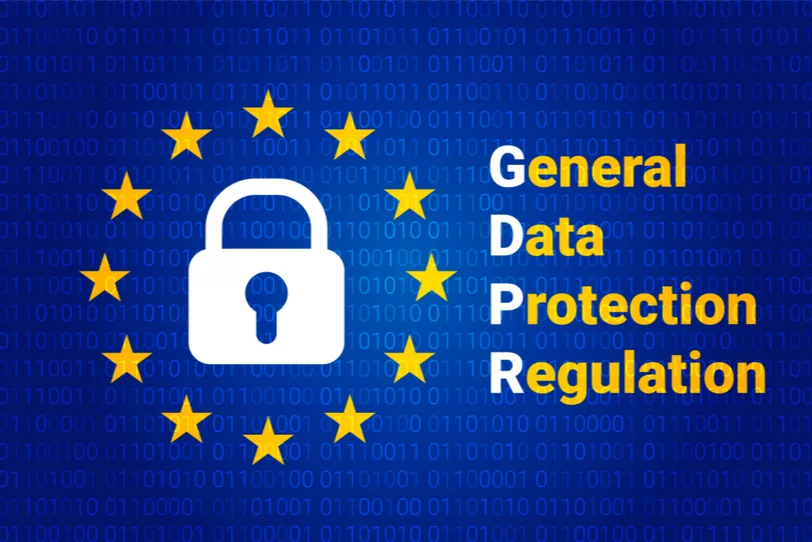
The General Data Protection Regulation or GDPR is new regulations of the current EU Data Protection Act. The EU’s Data Protection Act was created back in 1995. It has remained unchanged for more than 23 years. Technology is evolving very fast with time. There are many new cyberthreats that companies need to deal with. IoT devices are also increasing the risk of cyberattacks. Hackers can use IoT devices for getting access to enterprise data. Almost everything is available on the internet. We have given our personal information to tons of websites. Thus, the EU’s old Data Protection Act was outgrown by new technology.
This was the main reason behind GDPR’s creation. EU has debated for more than 4 years on GDPR. They have tried to create a consistent data privacy law that is applicable across entire Europe. EU is trying to make sure that its citizen’s data is secured. Now, the personal data will include these things: IP addresses, email accounts, photos, names, bank detail, biometric and medical info. The process of getting this information is also heavily regulated by GDPR.
EU can apply heavy fines of up to 4% of your company’s global turnover on enterprises that are not following GDPR rules. Thus, your company should follow new GDPR regulations. There are various new rules that you have to follow like:
- Your user consent form should be written clearly. The main intention of this rule is to reduce the length of consent forms.
- GDPR has also introduced the “Right to access”. Now, you have to tell your users how you are using their data.
- GDPR has also introduced “Right to be Forgotten” which will ensure data erasure. Now, your users can withdraw their personal information whenever they want.
- Article 23 of GDPR has also introduced “Data Minimization”. Now, you can only store data that is necessary for your operations. The main aim of data minimization is to increase data security.
GDPR is also imposing stricter rules on companies for protecting personal information. Data Protection Officers or DPOs will be appointed to companies that are doing large-scale processing of raw data. If you are a public authority or engage in the large procession of data, then DPO is mandatory for your organization.
In this article, we are going to tell you how to prepare your business for GDPR.
-
Educate yourself
Most of the small or medium-sized businesses don’t know about GDPR. According to a report by ItPro, only 7% of companies completely understand GDPR rules. First, you should learn about new GDPR rules and regulations.
The main aim of GDPR is to make companies accountable for data breaches. Thus, you must ensure that your user’s information is protected from attackers. There are various security compliances that you have to follow. You should also consult with your IT department. Your IT department and managers should have a full understanding of security risks.
-
Work with professional security experts
It is important to secure your data from hackers. Thus, you should hire professional security experts or work with a cybersecurity firm. If you don’t know about new rules or compliances, then this is a perfect option for you. Choose a knowledgeable and experienced cybersecurity firm that is offering GDPR services. They will review your system to check if you are following GDPR rules. These firms will also help you in implementing new things in your system.
-
Change your current security policy
After understanding new GDPR regulations, you should take a look at your IT security measures. Also, you should check how you are handling your user’s data. You should check what data you are storing and where you are storing this data. According to new GDPR rules, now customers can ask you to erase their personal data. Thus, you must have the capability to delete your customer’s personal data. You might need to change the method that you are currently using for storing data.
Once you have understood your current IT system, you can easily add new elements that are required by GDPR.
-
Change your Privacy policy
Most companies think that privacy policy is only legal documentation that they need to abide by. They don’t affect their day-to-day operations. Thus, most companies forget to change their privacy policy. According to GDPR rules, your privacy policy should be easy to understand. Also now your users need to opt into data storage. Thus, GDPR is trying to make the whole system transparent.
-
Get Ready for Assessments
EU is taking the legislation very seriously. You might have to deal with various different assessments. These assessments will make sure that you are following GDPR rules. Also, there are heavy penalties for companies that are not following the GDPR regulations. Thus, you should make sure that you are following GDPR regulations.
-
Appoint a DPO
If you are doing large scale processing of data, then you must appoint a data protection officer. Your DPO will first understand the nature of the information you are storing. They will monitor all the data you are storing. After that, your DPO will work with your IT team in implementing the correct procedures. They will make sure that you are following all the compliances.
Conclusion
You can follow the above tips for making sure that your business is following GDPR regulations. First, you must understand all the relevant requirements under data privacy and state laws. If you don’t want to worry about security compliance, then you can also hire a security professional. They will make sure that your company is following GDPR regulations. The main aim of GDPR is to make sure that companies are protected from data breaches. If you want more information about GDPR, then you can contact Bleuwire.
Contact us today to learn about Bleuwire™ services and solutions in how we can help your business.





